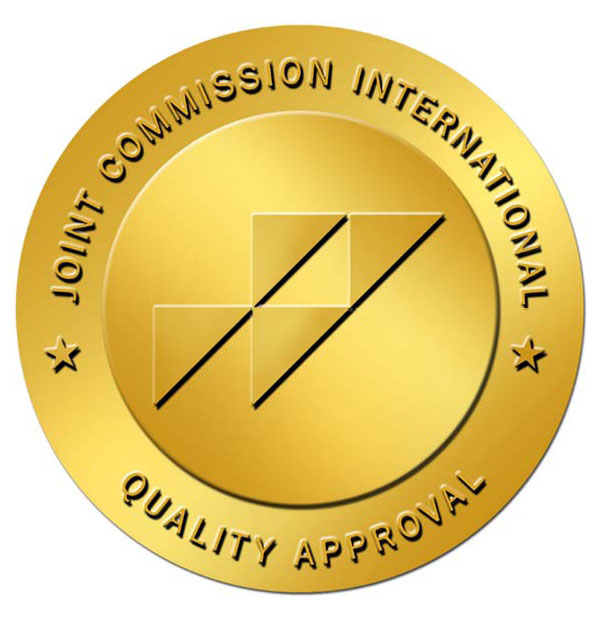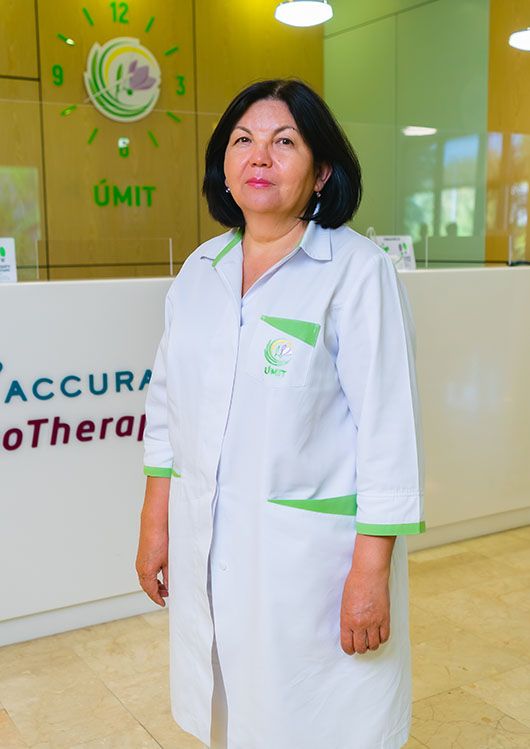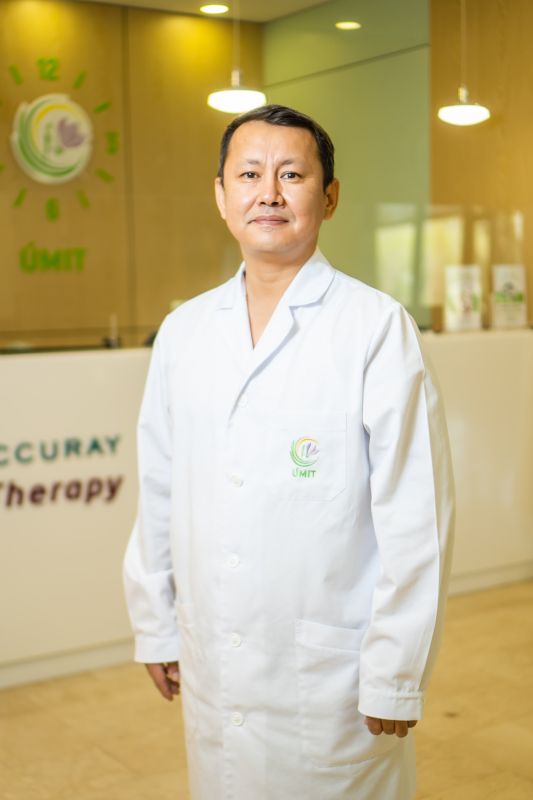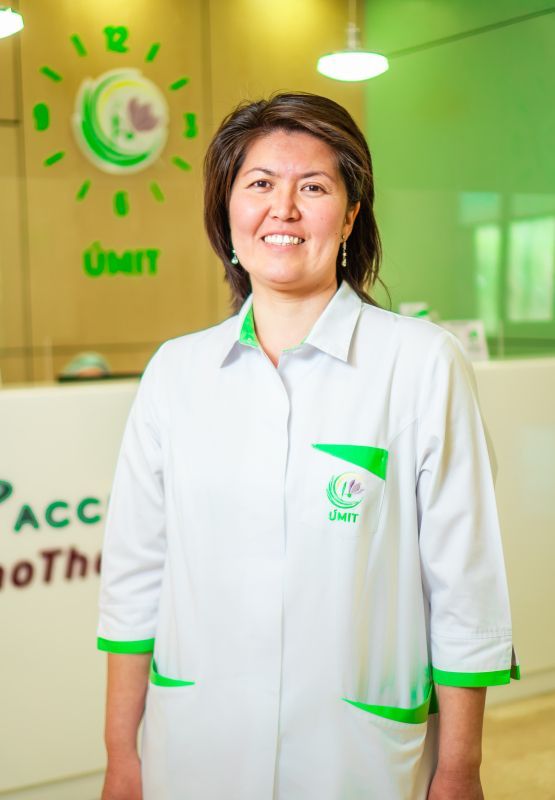Mammology
Breast oncologist is a doctor who deals with the diagnosis, treatment and prevention of mammary glands diseases. The help of this specialist may be required for both women and men, however, the fair sex is more at risk of developing breast pathologies. If you need a consultation of an experienced breast oncologist, please contact our center. We offer patients advanced diagnostic and treatment options for breast diseases.
When is it necessary to go to a breast oncologist?
Women are recommended to monthly conduct self-diagnosis, which consists of a visual examination of the breast in front of a mirror and palpation of the tissues for lumps and pains. It is better to perform self-examination within a week after menstruation. A consultation of a breast oncologist is required if patient has:
- change in the size or shape of the breast/nipple;
- lumps or nodules under the skin;
- pain or swelling in the area of mammary glands;
- unusual discharge from the nipple;
- redness or sores on the breast skin;
- retraction of one nipple;
- axillary adenopathy, etc.
Even if self-diagnosis shows no change, we recommend women to visit a breast oncologist every year for a professional preventive examination. A doctor's consultation is also required in the following cases:
- you are going to have hormone therapy;
- you are planning a pregnancy or have had an abortion;
- you have had any chest injury;
- you are going to have plastic surgery on the mammary glands, etc.
Men should go to a breast oncologist in case of:
- pain in the chest area;
- swelling, enlargement, lumpiness of mammary glands;
- discharge from the nipples;
- hematomas or non-healing wounds on the chest skin;
- atypical bulge or retraction of a nipple, etc.
Breast cancer is not only a female disease, it is often diagnosed among men as well. The sooner you contact a specialist, the higher the chances of a successful cure.
When is the best time to visit a breast oncologist?

For women of reproductive age, the optimal time to visit a doctor for a preventive examination is day 5-12 of the menstrual cycle. During this period, the hormonal background normalizes, and the examinations performed will allow to reveal the slightest changes in the tissues.

If a woman is breastfeeding a baby, it is recommended to visit a breast oncologist 2-3 months after the completion of this stage. The reasons for an unscheduled visit to a specialist may be nipple fissures, feeding difficulties, signs of lactostasis and other symptoms.

There are no restrictions for women who have entered the menopause period. During this period, the production of sex hormones decreases, the breast ceases to experience changes associated with the menstrual cycle, so women can visit a doctor at any convenient time.
Methods for diagnosing mammary glands diseases.
Laboratory tests allow to clarify the nature of neoplasms found in the mammary glands, as well as to diagnose inflammatory processes in the tissues.
- Assessment of hormonal status. Most breast diseases are directly related to the level of sex hormones. To determine the treatment tactics, the doctor will need blood tests for estrogen, progesterone, prolactin, etc.
- Puncture biopsy. The examination is carried out if ultrasound or mammography showed the presence of lumps in the breast. The puncture involves the sampling of tumor cells for further assessment in the laboratory. This is the only way to detect breast cancer.
- Cytological examination. The appearance of discharge from the nipples in women, except for the lactation period, may indicate changes in endocrine profile. The biomaterial must be submitted for analysis to exclude inflammatory pathologies.
- Tumor marker. The blood test may be performed for an early diagnosis of breast cancer. The test for tumor markers is highly sensitive and informative.
Ultrasound. Ultrasound examination of mammary glands can be performed almost without restrictions due to its safety and painlessness. Ultrasound helps to detect neoplasms in the tissues and determine their location. The best time to conduct the examination is before the onset of ovulation, that is, 5-12 days after menstruation with a cycle of 28 days and 7-14 days with a longer cycle.
Mammography.This method of X-ray diagnostics allows to detect neoplasms at the earliest stages. The examination helps to identify cysts, fibroadenomas, calcifications, mastopathy and other pathologies. Mammography, like other methods of radiation diagnostics, is quick and painless, and does not require any preliminary preparation from patient.







 public offer
public offer














